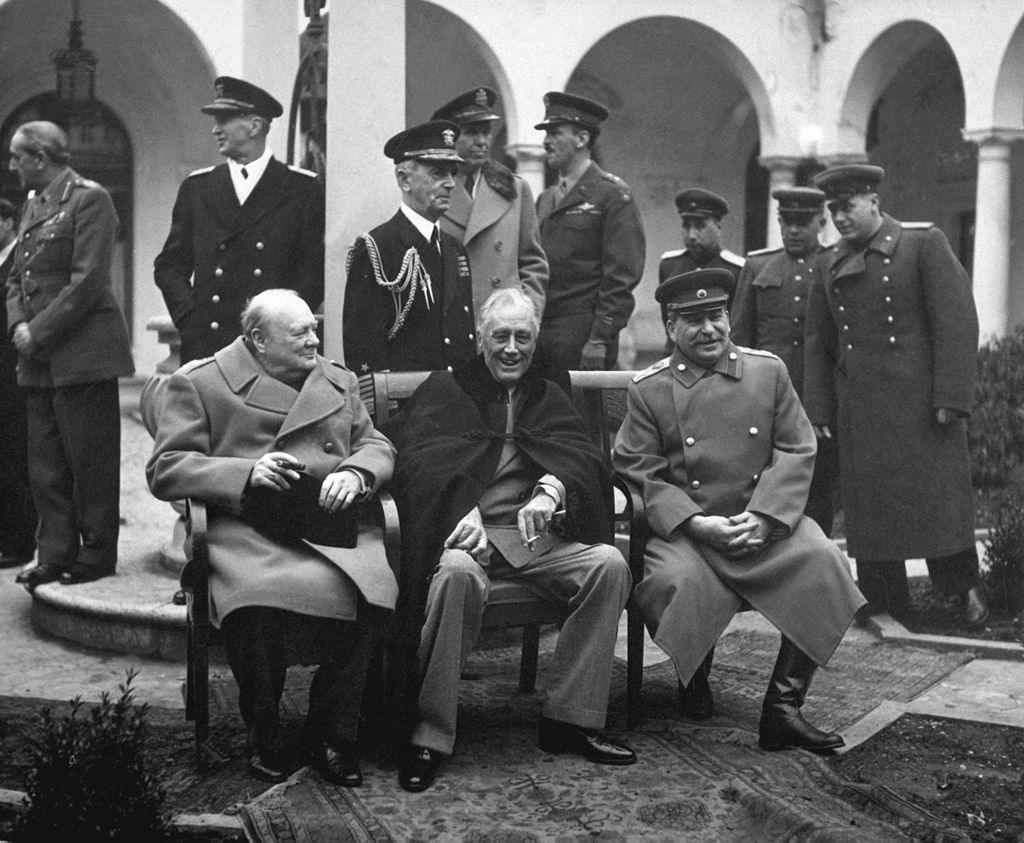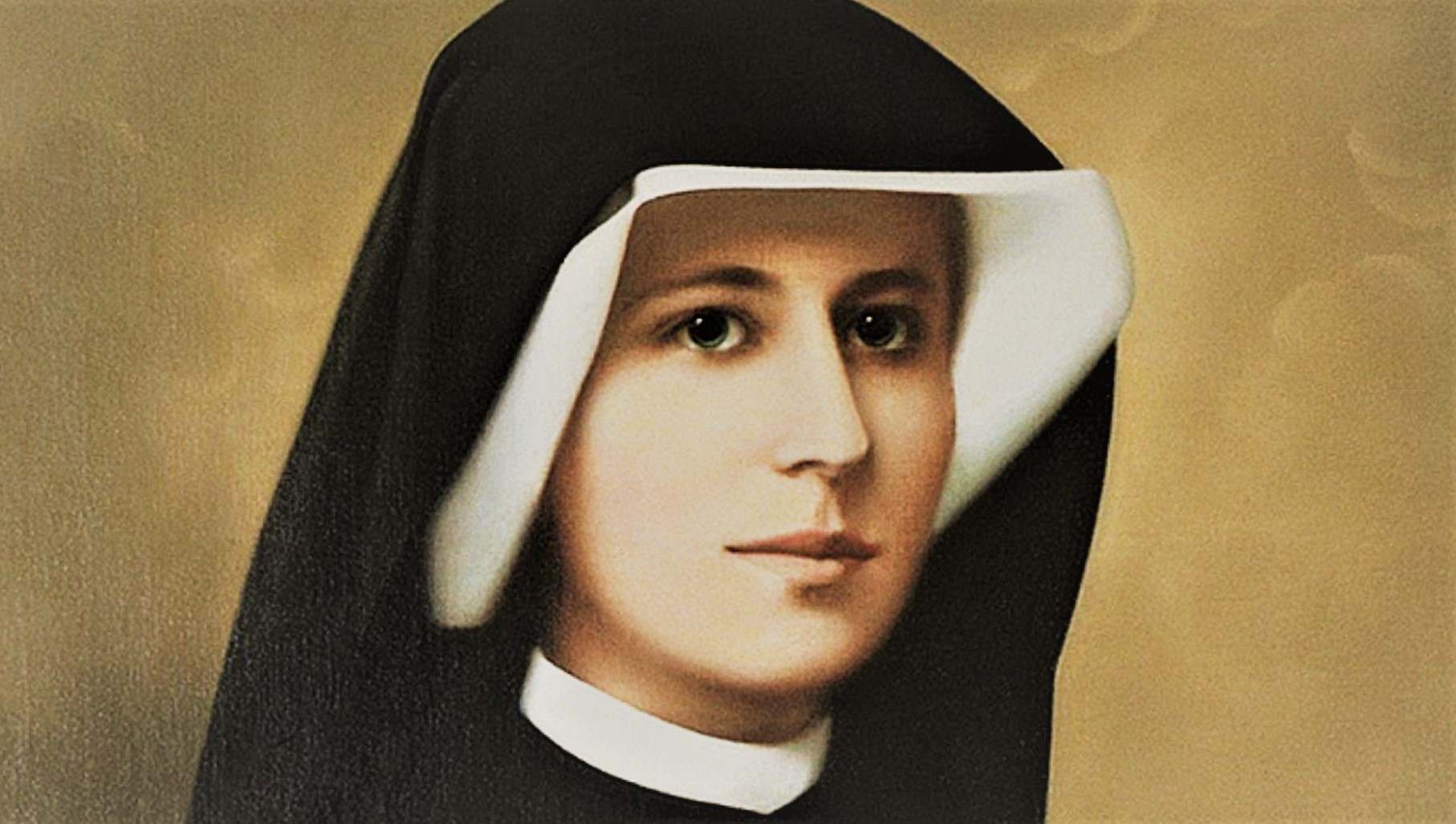A few days ago, Russia carried out an armed assault on Ukraine, causing a hybrid war to turn into a regular one. How can we understand this move by Putin? What have the relations between Russians and Ukrainians looked like over the course of history and what divides them most in it? We talk about this with Dr Łukasz Adamski, Deputy Director of the Centre for Polish-Russian Dialogue and Understanding.
polishhistory: Is Vladimir Putin the greatest fan of historiography among contemporary European politicians?
Łukasz Adamski: Definitely not. I know many European leaders or politicians who rightly refer to history and who, unlike Putin, understand what it really is. Vladimir Putin is a pseudo-historian, he thinks he knows history and can write historical articles – just as Stalin thought he could write articles on linguistics. The level of these articles is very similar. So he is certainly not the greatest lover of history, but it can be said that he is to the greatest extent enmeshed with history, he has a false image of it based on many myths and misrepresentations, not taking into account the changing circumstances of time or the experience that nations have gained from the First and Second World Wars.
In his actions, does Putin refer to the Tsarist concepts of the 19th century or rather to those of the 20th century, the Soviets? Does it matter at all from the point of view of history?
It certainly does, but I think we should go back even earlier. The basis of Russian identity, which for many centuries has shaped the way Russians think about politics and culture, and finally about themselves, is the assumption that the old Ruthenia – a conglomerate of states existing a thousand years ago in a distant eastern space – was a Russian state. Just look at the language – in Russian there is no distinction between ‘Ruthenism’ and ‘Russianness’, they are identical concepts. This alone makes it very difficult for Russians to understand what Putin’s mistake is, and, before that, those of other politicians who did not recognise Ukrainian independence – for there were many such people.
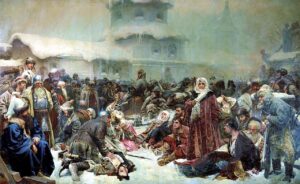
The Russian state, for centuries referred to as the Muscovite state or Muscovite tsarism, has long regarded itself as the only legitimate continuator of the Ruthenian state and therefore entitled to the Ruthenian lands. This policy had already been initiated by the Grand Prince of Moscow Ivan the Great in the 15th century, and was later continued by Ivan the Terrible and successive tsars. According to this ideology, it was Kyiv that was the first capital of Ruthenia – and therefore, as the tsars understood it, of Russia, and it is the duty of the Russian state to unite all former Ruthenians into a single state.
According to the ideology of the ‘triune Russian nation’?
Exactly so. In the 19th century, during the rise of Russian nationalism, the so-called All-Russian idea emerged, saying that there was one nation: Russian and Ruthenian at the same time, consisting of three great tribes – Great Russian, Little Russian and Byelorussian – that is, today’s Russians, Ukrainians and Belarusians, respectively. This belief strongly defined Russian thinking about its identity, politics, territory, what Russia is and its place in the world. The problem is that it was mainly Russians who believed in it, an ideology that was not shared by a significant part of the elite of the Ukrainian lands within Tsarist Russia, and even less so by the Ukrainian peasantry.
I once read the memoirs of a Russian official and traveller who, just over two hundred years ago, travelled to Left-Bank Ukraine. What was his surprise when it turned out that the Little Russians – today’s Ukrainians – totally disagreed with him and treated the Ruthenians as a foreign nation, scaring their children with the Muscovites. Another good example is Taras Shevchenko, the best-known Ukrainian poet, a recognised symbol of Ukrainian national identity and, at the same time, the voice of the Ukrainian peasantry. One of his best known poems, Katerina, begins with the words – ‘Fall in love, dark-browed maidens, But not with Muscovites, They will only hurt your heart…’. There is no trace of love for Russians here, quite the opposite. At the same time, many sources indicate that the ‘lords’, i.e. the Polish nobility, were treated by Ukrainian peasants not as strangers, but as a native factor.
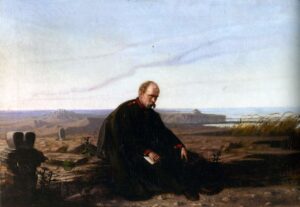
So who did the Ukrainians identify with, if not the Russians?
The Ukrainian national idea, which was born in the first half of the 19th century, demanded recognition of the inhabitants of today’s Ukrainian territory – at that time in Polish they were called Ruthenians, and in Ukrainian: Ruthenians, Little Russians or Ukrainians, as a separate nation. It was directed against the Poles as well as against Russia. In the 19th century, the dispute with the Poles – who had already recognised the Ruthenians as a separate nation during the January Uprising – was essentially about whether the two nations were to live together in the future, in a rebuilt Poland – as a federation, or at least a confederation – or separately. The dispute with the Russians, on the other hand, was of an absolutely existential nature – whether the Russian Empire was to be a state of two nations originating from the former Ruthenia (Rus’): Great Ruthenians (Russians) and Little Russians (Ukrainians), and from the beginning of the 20th century – whether Ukraine was to be independent, or whether all the Eastern Slavs constituted a single Russian/Ruthenian nation.
The imperial bureaucracy tried to stop the development of the Ukrainian national movement with repressive measures – for example, in 1863 Interior Minister Valuyev declared that ‘there was, is and can be no Little Russian language’. In 1876, Tsar Alexander II even banned the printing of fiction in Ukrainian, except with the permission of the chief censor in Saint Petersburg. At the same time, in Austrian Galicia, Ruthenian nationalists fought fiercely against the Muscovite movement, which proclaimed cultural, political and later national community with the Russian nation. However, after the 1905 revolution, it became clear to many sober-minded Russian elites that the Ukrainians were becoming a separate nation and that the Russian state had to accept this by granting them autonomy, something which the empire and Russian nationalists, especially the Black Hundred, continued to oppose. Unfortunately, Lenin and his successors led Russia out of European civilisation, and the ideas of the Black Hundred, frozen for over seventy years, were revived in the 1990s.
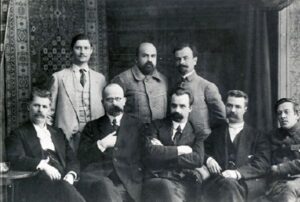
It should be noted that Ukrainian political culture and, to a large extent, mentality are similar to those developed in the pre-partition Polish-Lithuanian Commonwealth. The Russians cannot understand this, they cannot see that they are dealing with a completely different state – not only politically, but also nationally – and that this is a fundamentally different political culture. More or less consciously, they are guided all the time by the all-Russian ideology – not only Putin and his advisers are not free from this, but also many intellectuals, oppositionists, who so longingly refer to the slogans about ‘brotherly nations’.
But Putin once admitted that the collapse of the Soviet Union was the ‘greatest geopolitical defeat of the 20th century’.
Yes, Vladimir Putin values the Soviet Union, but mainly because it was an empire. He does not value its system, or at least in his public statements it is hard to find traces of such affection, quite the contrary. He repeatedly lamented the fact that, due to the alleged short-sightedness of the Bolsheviks, historical Russia lost part of its territory and a Ukrainian state was created, admittedly as a Soviet republic, but nevertheless as a separate administrative unit. He did not spare any criticism of Stalin either, probably sincerely believing that it was the annexation of Galicia and Volhynia to the USSR that caused ‘nationalism’ there to spread to other areas of Ukraine. To a certain extent, of course, Putin would like to rebuild Stalin’s entire empire, to restore Russia’s influence in the former Soviet republics. However, the most important thing for him is undoubtedly Ukraine.
In his propaganda, Putin has repeatedly said that before the Soviet period there was no Ukrainian nation separate from the Russians at all, and that these nations – despite the current conflict – are linked by an indissoluble bond. At the same time, he has more than once explicitly denied Ukraine’s right to sovereignty. How is it possible that Ukraine can be so close to him and yet so distant and hostile?
It is an apparent paradox. Putin does not so much feel hostility towards the Ukrainians, but rather sees them as members of the same nation as Russians, only historically defiled. Psychologising, one could say that Putin himself probably only manifests resentment towards Ukrainian ‘nationalists’; what this criminal does not understand, however, is that only a month ago, the overwhelming majority, and now probably all Ukrainians, became ‘nationalists’.
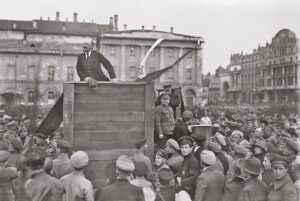
From the Kremlin’s point of view, the creators of the Ukrainian state are separatists, incited by the Poles and Germans, and later by Lenin, who with his short-sighted nationality policy did not allow the process of creating a single Ruthenian-Russian nation to be completed. In his opinion, the Ukrainians are therefore historically Russians and have a right to a separate state – but a limited one, and therefore a puppet state subordinated to Russian influence. The Ukrainian government does not agree to this, the Ukrainians themselves do not agree, and this provokes Putin’s hostility and rage.
But the attacks are increasingly hitting civilians – Putin is mounting an assault on a nation that he believes belongs to the same national community?
Putin has undoubtedly led himself into a trap with his actions. He keeps repeating that the Ukrainians are the same nation as the Russians, which makes it increasingly difficult for him to rationally explain to his public opinion the mass murders or the repression of his own people. This leads him to focus his military campaign against the Ukraine primarily on military objects. On the other hand, the rising costs of the war mean that he can only end it with terror, war crimes and intimidation of the civilian population. A vicious circle is emerging that only increasingly delegitimises his narrative in the eyes of the Russians themselves.
It is also important to remember that the Putin of two years ago is a very different Putin from the Putin of today. Back then, he was an international ‘hooligan’ whose crimes, such as the occupation of Crimea, the war in Georgia or the Donbass, were not usually seen as a threat to the entire global security system. Today we are dealing with a criminal who can be compared, without exaggeration, to Adolf Hitler in 1939, after the invasion of Poland. That is more or less the stage he is at now.
And how does he view Russia’s relations with the West? As early as the 18th century, Tsarina Catherine II used them instrumentally to advance her interests.
Yes, to a certain extent, but one should remember that Putin’s thinking about the world is strongly influenced by the conviction that it is naturally based on a competition of power – military and material – not ideas. He is simply not a democrat, he thinks that international law or international agreements – something civilised nations consider regulators of international relations – is a kind of dummy, a fiction. International law, in accordance with the now fundamental idea of the sovereign equality of states, assumes that states are equal to one another, and therefore Russia is the same subject of international rights and obligations as, for example, Luxembourg or Estonia. Meanwhile, Russians have always perceived the world as a competition, as a result of which several centres of power emerge, entitled to their sphere of influence.
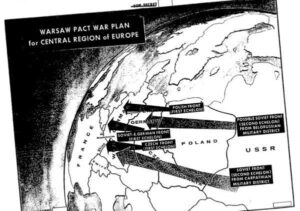
This is dangerously reminiscent of the Cold War period…
Unfortunately, yes. Putin, like his predecessors in history, sees the world as an arena of rivalry between states, from which several centres of power emerge with the right to have their own sphere of influence. According to such thinking, Russia, as the centre of power and at the same time the historical hegemon in the eastern territories, has the right to decide on Ukraine’s policy – foreign and, in a sense, also internal.
Something like Finlandisation – the solution that was applied in Finland after the end of the Second World War?
The solution that functioned in Finland during the Cold War allowed the Russian authorities to interfere not only in foreign policy, but also in Finland’s internal affairs. Not once did they force certain decisions or even kidnap politicians. The Finns accepted this solution with pain, because they knew that the alternative was war or becoming a satellite state controlled by the USSR. Would such a solution apply today? Until recently it seemed that it would not as reality had already changed dramatically. But with his aggression against Ukraine, Putin has just as dramatically changed circumstances. His actions are a return to thinking in terms of Yalta, and that is why it is so dangerous – the civilised world, mindful of the painful experiences of the 20th century, simply cannot agree to it.
Russian propaganda has been justifying its expansions with the same set of myths and motives for centuries. Is the imperial idea inscribed in Russian statehood?
Yes, Russian political culture is largely imperial. One can try to justify it scientifically in such a way that it is a certain variant of the national idea, but from the point of view of the world, and especially of the Ukrainians and Belarusians – nations whose neighbour tells them that they are Russians and wants to conquer their territories – this is imperialism. Of course, not all Russians are imperialists. However, looking at the results of surveys we did some time ago at the Centre for Polish-Russian Dialogue and Understanding, imperialist thinking is characteristic of up to 60–70 per cent of Russians.
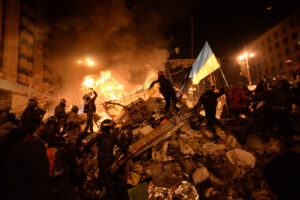
I believe that all those Russians who shouted ‘Crimea is ours!’ and agreed to recognise its annexation – and this was about 80% of Russian citizens, with well over half of those in the Donbas – share responsibility for the crimes of the Russian regime in Ukraine. The same applies to all those who have not unequivocally condemned these crimes and who try to distance themselves from Putin’s actions or to relativise them. That is why, as a matter of principle, a policy needs to be introduced that hits the whole nation – that is the only way to make it reflect on the shared responsibility of every Russian who supports Putin for the crimes committed in Ukraine. It is time to make Russians realise that an imperial dinosaur in a mammalian world has no chance of survival – especially when the empire poses a real threat to its neighbours.
Interviewer: Natalia Pochroń
Translation: Mikołaj Sekrecki

